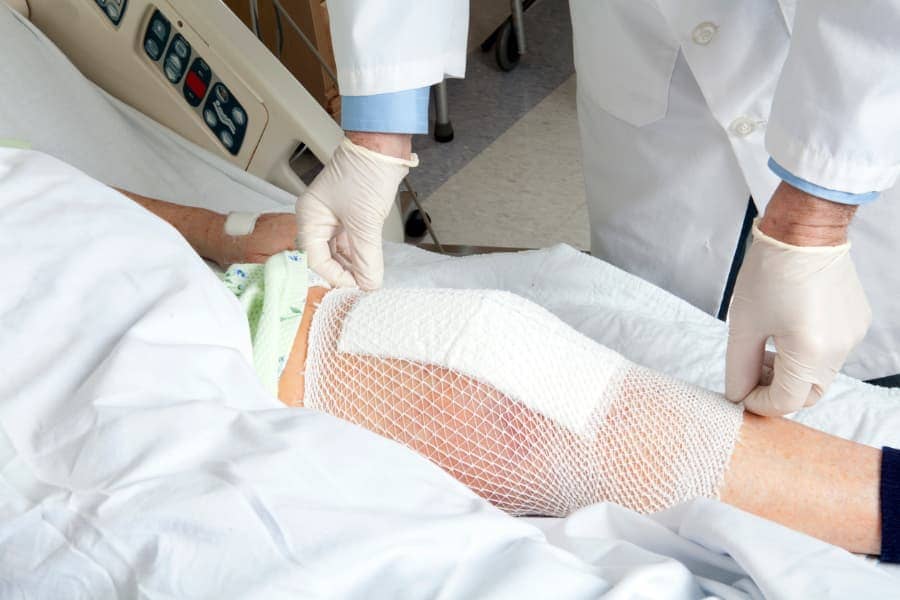You use your knees every day, sometimes without even thinking about what they’re doing. But when one of those knees becomes injured, or a previous replacement fails, the pain and discomfort can make even the simplest tasks difficult. At High Mountain Orthopedics, Dr. Matarese and Dr. Novack specialize in a variety of knee surgery procedures designed to restore function and mobility to your joint. Here, we describe instances under which you should consider a total knee replacement or a knee revision.
Deciding on a Total Knee Replacement
Before resorting to total knee replacement surgery, your doctor will first prescribe medication to manage symptoms alongside lifestyle changes. Some lifestyle changes could include exercise, weight loss, and physical therapy. In some cases, you may undergo a non-invasive, arthroscopic procedure to help relieve symptoms. If you have made these changes and find that your symptoms are not going away, it may be time for a total knee replacement.
Total knee replacement surgery is a procedure that involves the removal of major parts of the knee joint and replacing them with prosthetic bones, ligaments, or tendons. You may want to consider a total knee replacement surgery if you are experiencing the following symptoms:
- Little to no pain relief from medications
- Prolonged inflammation and swelling that doesn’t improve
- Severe pain that persists throughout the day and/or limits mobility and daily activity
- Leg that bows inwards or outwards
Designed to improve your quality of life by alleviating severe pain, having a total knee replacement can also work to restore strength and range of motion in your knee.
Is Knee Revision Surgery the Better Option?
With a total knee replacement, implants will usually last about 15 to 20 years. This means that total knee replacement procedures can fail for any number of reasons. For example, if you had a total knee replacement at a young age, you may need a knee revision in the future. People with arthritis are also more likely to require knee revision surgery.
If you have already undergone a total knee replacement and are starting to experience painful symptoms again, additional knee revision surgery can help to alleviate discomfort. Some signs that indicate that knee revision surgery is needed include:
- Stiffness in the knee that reduces your range of mobility
- Unstable knees that make you more susceptible to additional injury
- Knee infections
- Degrading or failing prosthetic replacements
There are plenty of instances where prior knee surgeries don’t wind up with complications. However, if your knee replacement is causing undue pain and decreased quality of life, there are many treatment options available to you.
Knee Surgeries at High Mountain Orthopedics
After your total knee replacement procedure, there is a one- to five-day observation window to ensure no complications. Once you are cleared, you’ll be discharged and given an aftercare regimen that will help heal and restore strength in your knee. For knee revision procedures, the post-op observation window varies from patient to patient.
At High Mountain Orthopedics, we offer high-quality medical expertise and orthopedic surgeries, including total knee replacement and knee revision procedures. To learn more about these procedures in the Wayne, Paramus, or Englewood, NJ areas, schedule an appointment with us today.

